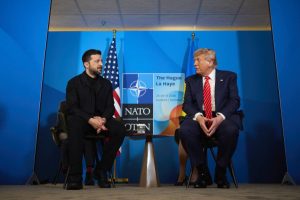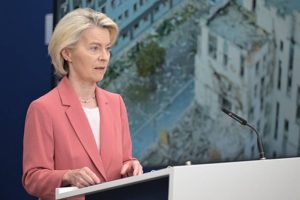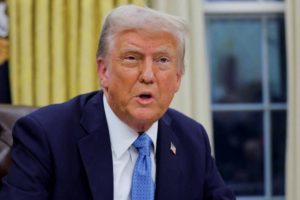European foreign ministers are set to meet on January 27 in Brussels to deliberate on lifting sanctions against Syria, following a significant regional meeting in Riyadh. The gathering in Riyadh brought together top diplomats and ministers from Western nations for the first such discussions since the ousting of Syrian President Bashar al-Assad last month, Al Jazeera reported.
EU foreign policy chief Kaja Kallas announced the upcoming meeting, emphasizing the bloc’s focus on fostering an inclusive Syrian government that respects human rights and avoids radicalization. She also noted that any decision to ease sanctions could be reversed swiftly if necessary.
“The EU seeks an inclusive Syrian government that respects the rights of women and minorities and avoids radicalization. Any relaxation of sanctions would be conditional and reversible,” Kallas stated, according to Al Jazeera.
Saudi Arabia’s Foreign Minister, Faisal bin Farhan Al Saud, urged the removal of sanctions, citing their impact on Syria’s development and reconstruction.
“We stressed the importance of lifting unilateral and international sanctions on Syria, as their continuation hinders the aspirations of the Syrian people to achieve development and reconstruction,” Al Saud said.
Syria’s new Foreign Minister, Asaad Hassan al-Shaibani, who has long called for the removal of sanctions, joined the discussions alongside foreign ministers from Saudi Arabia, Egypt, the UAE, Qatar, Bahrain, Iraq, Jordan, Lebanon, and Turkey.
Western officials, including US Under Secretary of State John Bass, German Foreign Minister Annalena Baerbock, and British Foreign Secretary David Lammy, also participated.
A statement from the Saudi foreign ministry reaffirmed the need to lift sanctions to support Syria’s reconstruction. It highlighted the importance of rebuilding Syria as a unified, independent state while respecting its sovereignty and territorial integrity.
“[Discussions focused on] supporting the Syrian people during this critical phase and assisting them in rebuilding Syria as a unified, independent, and safe Arab state for all its citizens, free from terrorism and external interference,” the statement said.
The US recently granted a six-month sanctions exemption to facilitate humanitarian aid transactions with Syrian governing institutions. Meanwhile, Germany, Italy, and France have expressed support for easing EU sanctions, though any decision requires unanimous approval from all 27 member states.
German Foreign Minister Baerbock advocated for a “smart approach” to sanctions, targeting those that hinder reconstruction while maintaining restrictions on individuals linked to war crimes.
“Sanctions against those responsible for serious crimes must remain, but relief for the Syrian population is essential. Syrians need immediate benefits from the transition of power,” Baerbock said, as reported by Al Jazeera.
Kallas reiterated that sanctions relief would primarily address barriers to rebuilding, such as restrictions on banking services.
The Riyadh meeting marked the first instance of Syria’s new administration, led by Hayat Tahrir al-Sham (HTS), participating in discussions with Western officials. It followed earlier diplomatic talks in Rome and Jordan, where concerns were raised about the country’s new leadership and the path to international recognition.
The talks come amid a push by Syria’s new government to secure international funding and support, with calls for sanctions relief being a central theme of recent diplomatic engagements.





